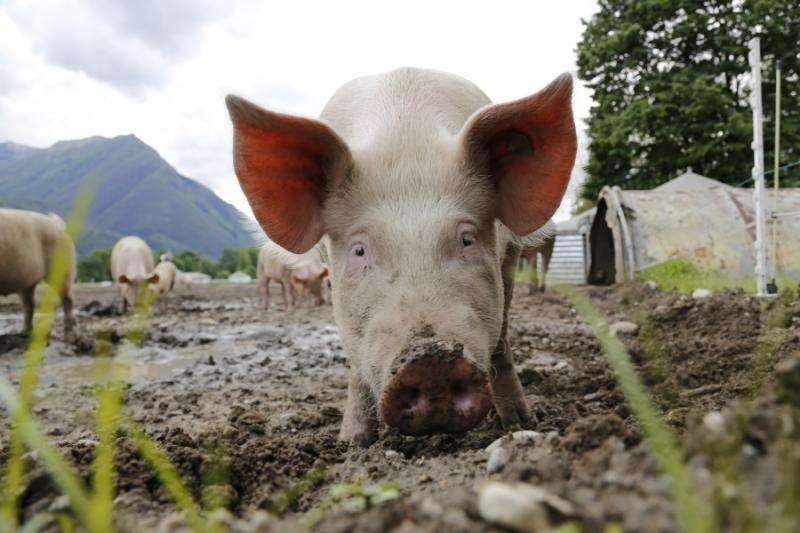Global effort needed to fight antimicrobial resistance

Food production is a key cause of the global antibiotic resistance crisis, according to a growing body of scientific evidence.
Intensive farming practices, especially of pigs and poultry, have led to a greater reliance on antibiotics to control infectious disease and promote animal development and growth. At the same time, effluent contaminated with antimicrobial residues is working its way into waterways and soils.
With global meat consumption on the rise, particularly in China, India, Russia, South Africa and Brazil, antimicrobial consumption is expected to rise significantly by 2030.
Professor Steven Djordjevic, from the ithree Institute of Infection, Immunity and Innovation at UTS, said reduction of antimicrobial use in livestock husbandry around the world must become a priority.
"Large-scale animal production facilities generate huge volumes of animal waste contaminated with veterinary antibiotics and other antimicrobial agents. That waste material ends up in ponds that are pumped on to fields where fruit and vegetables are produced. It also ends up in aquatic ecosystems."
Professor Djordjevic said that while Australia is a small producer of pork on the global scale, and with good governance around antibiotic use in livestock, the practices of other countries affect us.
"Every time we travel overseas, we bring back the local flora in our gastrointestinal tracts. Every time we import food from overseas, we bring in the flora from the country of origin as well.
"We are in a global village so we can't ignore what happens elsewhere in the world where antibiotic stewardship may not be a priority or stringently enforced. We have to limit antimicrobial use and prevent over-the-counter access without prescription because ultimately resistance to multiple microbials will end up in our backyard."
Professor Djordjevic said the story of a colistin resistance gene illustrates this point. Colistin is a last-resort treatment for patients with long-term chronic infections caused by multiple antimicrobial resistant organisms. In 2015, a mcr-1 gene was identified in E. coli from humans and food animals in China. This initial report prompted a worldwide effort to screen for the gene which has now been detected in 17 countries – and it is only a matter of time before it is found in Australia.
Professor Djordjevic is leading a team that is exploring how gut bacteria in pigs respond to antibiotics and probiotics. The four-year project is a collaboration with the NSW Department of Primary Industries.
The consequences for the environment of large-scale intensive animal production and a growing human population, estimated to reach 9 billion by 2050, are not fully understood, he said.
A recent preliminary review article by the researchers has highlighted how little is known of the multiple antimicrobial-resistant bacterial populations in intensively raised food animals.
Professor Djordjevic said genomic surveillance studies would provide baseline data that would help to establish which antimicrobial resistance and virulence genes are circulating in Australian microbial populations. Such studies would also assess the diversity of the bacteria carrying those genes and help to identify emerging pathogens. Metagenomic approaches would also enhance understanding of the role of gut flora in human and animal health.
Increased awareness, changing how our food is produced and sharing knowledge of best practice will all help to drive change, Professor Djordjevic said.
"There are several strategies that can be used to help reduce the global reliance on antibiotics," he said. "These include developing and applying better vaccines, increasing probiotic and prebiotic use and using phage therapy instead of antibiotics in both agriculture and medicine."
"Ultimately we need a concerted effort by all of the world's food producers to reduce the reliance on antibiotics in intensive food animal production," Professor Djordjevic said.
More information: Ethan R. Wyrsch et al. Genomic Microbial Epidemiology Is Needed to Comprehend the Global Problem of Antibiotic Resistance and to Improve Pathogen Diagnosis, Frontiers in Microbiology (2016). DOI: 10.3389/fmicb.2016.00843
















